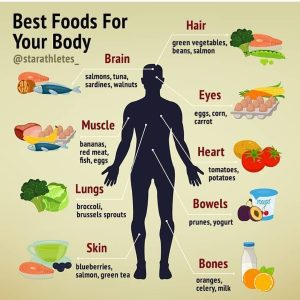
Food allergies and intolerances are becoming increasingly common in today’s society. While they may share similar symptoms, there are important differences between the two conditions.
A food allergy occurs when the immune system overreacts to a particular protein in a food item, mistakenly identifying it as harmful. This immune response can cause symptoms such as hives, swelling, difficulty breathing, and in severe cases, anaphylaxis.
On the other hand, a food intolerance refers to difficulty digesting certain foods due to enzyme deficiencies or sensitivities. This can result in symptoms like bloating, stomach pain, and diarrhea but does not involve the immune system response seen in allergies.
Identifying Food Allergies and Intolerances
If you suspect you have a food allergy or intolerance, it’s essential to seek medical advice for a proper diagnosis. An allergist or immunologist can conduct tests, such as skin prick tests or blood tests, to determine specific allergies or intolerances.
Keeping a food diary can also be helpful in identifying problem foods. Note down everything you eat and any symptoms that occur afterward. This can provide insights into any potential allergies or intolerances.
Managing Food Allergies
When it comes to managing food allergies, avoidance is key. Once you have identified the allergens, it is crucial to read food labels carefully and avoid any products containing them.
Informing restaurants and friends about your food allergies is important to prevent accidental exposure. Cross-contamination can occur when food comes into contact with allergens during preparation or cooking. Therefore, it’s vital to communicate your allergies and ask questions about food preparation methods when dining out.
Carrying an epinephrine auto-injector, such as an EpiPen, is recommended for individuals with severe allergies. This device delivers a dose of epinephrine, which can counteract the effects of anaphylaxis and provide time to seek medical help.
Dietary Changes for Food Intolerances
If you are diagnosed with a food intolerance, dietary modifications may be necessary to manage symptoms. Eliminating or reducing the intake of problematic foods can alleviate discomfort. For example, lactose intolerance may require avoiding dairy products or taking lactase supplements to aid digestion.
Working with a registered dietitian can be beneficial in developing an appropriate eating plan that ensures nutritional needs are met while avoiding trigger foods. They can provide guidance and support in making dietary changes and help find suitable alternatives to problematic ingredients.
Food Allergy and Intolerance Awareness
Creating awareness about food allergies and intolerances is crucial for the well-being of individuals affected by these conditions. Even if you don’t personally suffer from an allergy or intolerance, understanding how to accommodate and support someone who does can make a world of difference.
Educational campaigns, support groups, and initiatives within schools and workplaces can help foster a safe and inclusive environment for those with food allergies and intolerances. By spreading knowledge and promoting empathy, we can collectively make managing these conditions easier for everyone.

